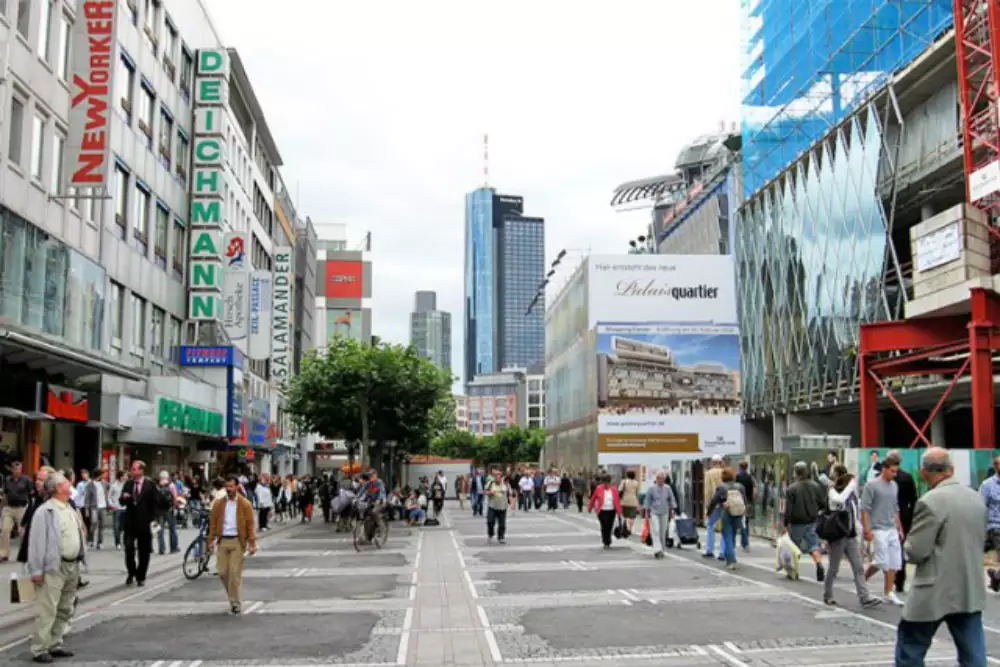

Founded in the 14th century as a cattle market, The Zeil gradually transformed into one of Frankfurt's most important commercial streets. Its position as a significant trade route contributed to the early establishment of shops and marketplaces. By the 19th century, The Zeil had developed into a flourishing shopping street, attracting city dwellers and visitors alike.
Over the centuries, The Zeil has undergone various architectural and commercial evolutions, reflecting the city's turbulent history, including considerable reconstruction after the destruction of World War II. The post-war era saw The Zeil reborn into a modern shopping destination, with an array of retail outlets that boast both local and international brands.
In the 1970s, Frankfurt made the visionary move to pedestrianize The Zeil, creating a more pleasant shopping experience and setting a trend for other cities. The implementation of this pedestrian-friendly environment was a turning point, cementing The Zeil as a primary destination for shopping tourists.
The turn of the millennium brought with it a new surge of redevelopment. Notable landmarks such as the Zeilgalerie, with its unique spiral walkway, and the modern shopping center MyZeil, designed by Italian architect Massimiliano Fuksas and opened in 2009, became focal points for both shopping and architectural enthusiasts. The MyZeil features a distinctive glass facade and has become an iconic piece of contemporary architecture on The Zeil.
Today, tourism on The Zeil thrives thanks to its blend of historical buildings, modern architecture, and a wide variety of retail experiences. The street's allure is enriched by surrounding cultural attractions such as The Römerberg and The Goethe House, drawing in visitors interested in more than just shopping.
Recent trends indicate a rise in experiential shopping, where consumers seek more than purchasing goods and value the overall experience. Frankfurt has catered to this by hosting seasonal markets, festivals, and other street activities on The Zeil. Food tourism also plays a significant role, with diverse culinary options available, ranging from traditional German eateries to international cuisine.
Sustainable tourism has been gaining momentum, and Frankfurt has responded with initiatives aimed at supporting environmentally friendly practices. This includes the promotion of green spaces around the shopping area and encouraging responsible consumerism.
The Zeil stands as a testament to Frankfurt's ability to blend tradition with modernity, offering a comprehensive experience that transcends typical retail expectations. It remains one of Germany's top tourist attractions for shopping enthusiasts around the world, consistently evolving to meet the needs of every visitor.